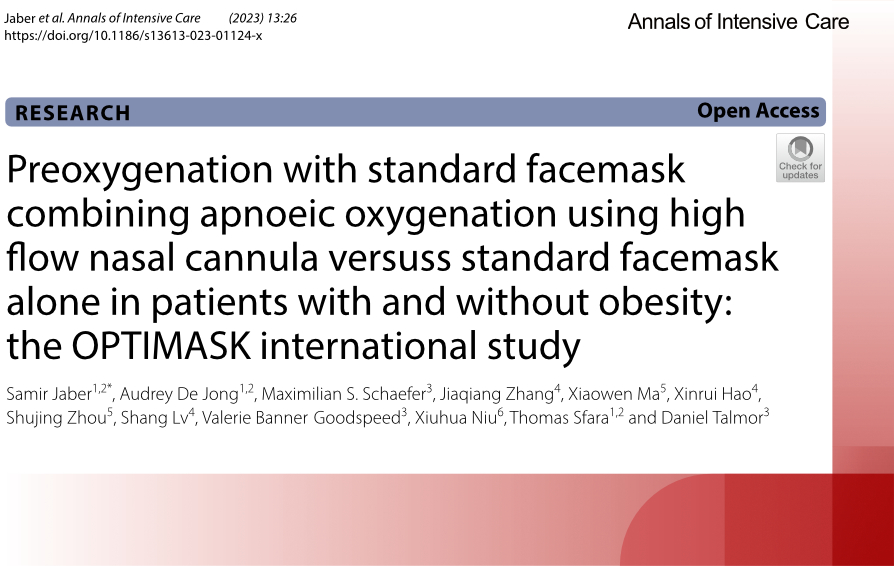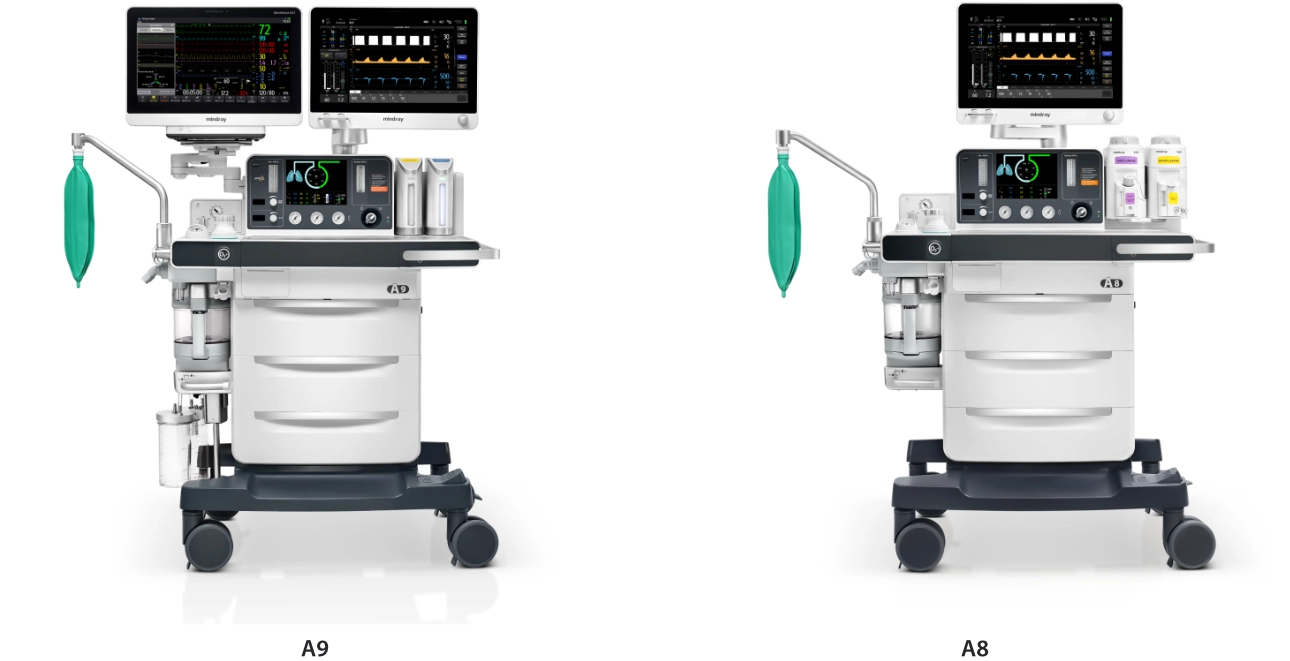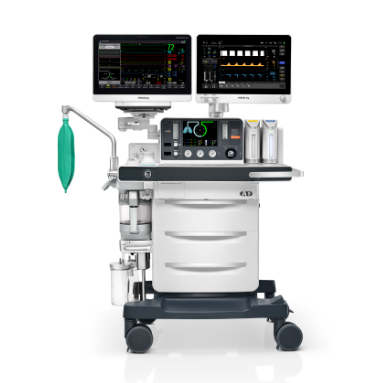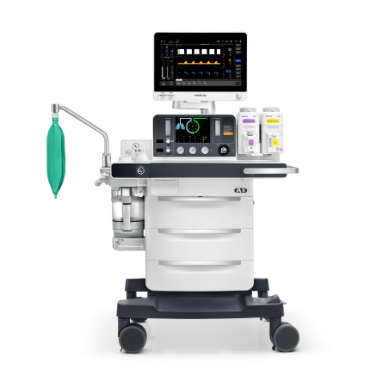The OPTIMASK International Study Joined by Mindray and World-leading Experts Is Published
2023-06-07

Annals of Intensive Care, a top journal of intensive care, recently published a paper entitled "Preoxygenation with Standard Facemask Combining Apnoeic Oxygenation Using High Flow Nasal Cannula versus Standard Facemask Alone in Patients with and without Obesity: The OPTIMASK International Study." The study investigated the effect of the facemask combined with high-flow nasal oxygen (HFNO) in improving oxygenation by comparing the use of "combining oxygen facemask with apnoeic oxygenation using HFNO for preoxygenation in the operating room" versus "standard facemask alone for preoxygenation."

This study was supported by Mindray incollaboration with renowned experts in anesthesia from world-class hospitals in the United States, France and China, including Saint-Eloi University (Montpellier, France) and Bethsrael Deaconess Medical Center of Harvard Medical School (Boston, USA), etc. A total of 450 adult patients intubated in the operating room were included in the study. The data were evaluated based on not only the patient's individual physical indicators, but also American Society of Anesthesiology (ASA) classification, Mallampati score, and anesthetic and surgical characteristics to ensure higher reliability of the data.
An Alternative for Induction of Anesthesia and Tracheal Intubation
The high-flow nasal cannula (HFNC) therapy in tracheal intubation has been extensively studied and explored by anesthesiologists in clinical scenarios for years. Many studies have confirmed the feasibility and effectiveness of HFNC application in anesthesia practice.
According to previous comparative studies, HFNC is superior to preoxygenation with a standard facemask alone in terms of comfort and apnoeic oxygenation time, while both are identical in the level of oxygenation, a highly valued indicator in clinical practice. However, the excellent performance of HFNC is conditional on patients' breathing patterns. In the cases of mouth breathing, preoxygenation with a standard facemask provides better oxygenation performance.

To address this issue, the study evaluated the efficacy of combining an oxygen facemask with apnoeic oxygenation using HFNC for preoxygenation compared to a standard facemask alone for preoxygenation based on end-tidal oxygen (ETO2).
The year-long observational study included 450 patients with different demographic characteristics who were intubated during surgery. The results showed that combining facemask preoxygenation with HFNC for both preoxygenation and apnoeic oxygenation resulted in less desaturation than using a standard facemask alone. This effect was also observed in patients with obesity.

These findings add to the safety of the induction of anesthesia and tracheal intubation. The study helps maintain the patient's circulation and oxygenation statuses while giving anesthetists confidence in their ability to work with patients with difficult airways and high risks. It also provides a sound theoretical basis for exploring new applications to expand the functionality of clinical devices.
Mindray will apply these findings to their A-series anesthesia systems, ensuring better patient safety during the peri-anesthesia period.

Mindray's Commitment to Academic Research
For over 30 years since its inception, Mindray has been establishing itself as a pioneer in high-quality innovation. The company's products have been adopted in hospitals across the world, gaining wide recognition and a good name among doctors, researchers, medical engineers, and others. In recent years, Mindray has been closely communicating with medical experts and societies of anesthesia and intensive care worldwide to broaden its path to academic research. This study is a milestone of its academic devotion and is expected to provide profound theoretical guidance for future clinical applications.
In 2020, Mindray established the Global Clinical Institute (GCI), a knowledge-sharing platform that links Mindray and global healthcare professionals. Every year, GCI organizes various academic sessions around the world, including Mindray Day, the real-life simulated training and academic session on anesthesia and intensive care which will take place soon in June, in Glasgow, UK. Through these events, Mindray brings world-renowned experts, scholars, doctors, and other healthcare professionals together to discuss popular topics and share insights and experiences, thereby accelerating and integrating clinical research and product development. Additionally, Mindray has established a public welfare research fund to support clinical studies on intensive care life support.
As part of its ongoing mission to "bring advanced technology within reach," Mindray engages in technological innovations and clinical research to build safer and more productive working environments for healthcare professionals and provide solid underpinnings for academic research. Mindray will continue to seek research partnerships with international medical experts, joining the global medical community in shaping a brighter future for healthcare.


